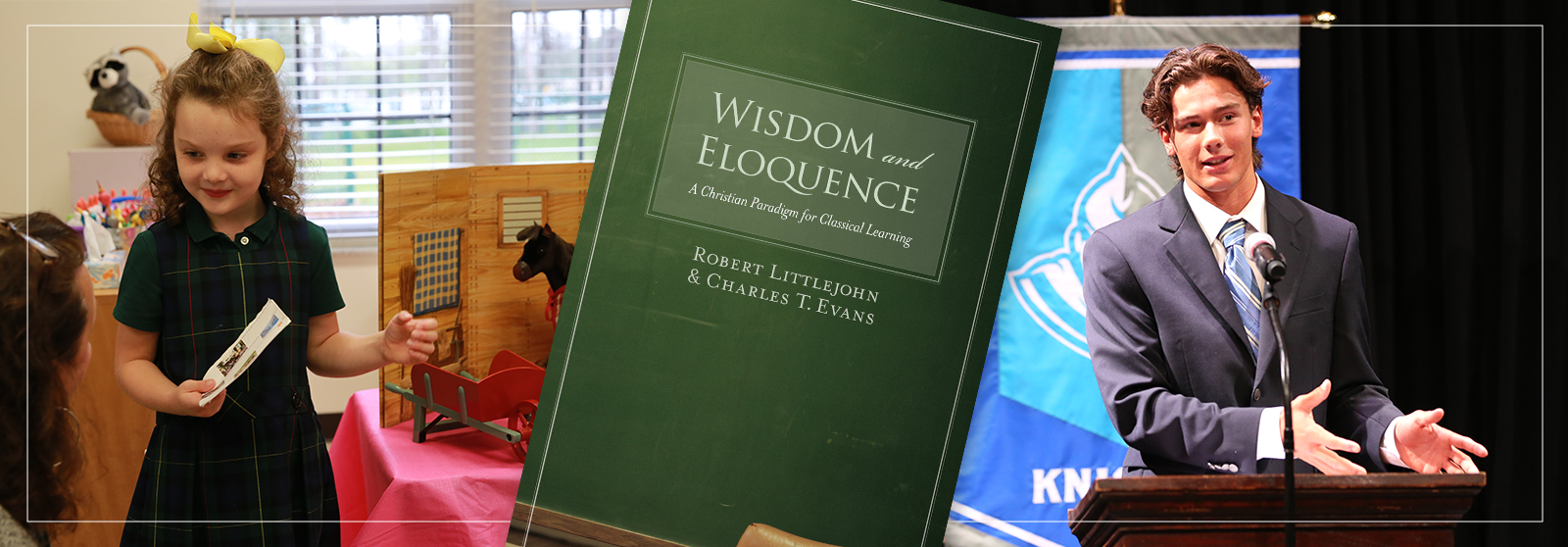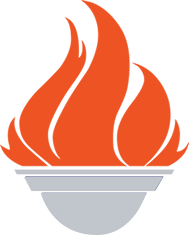Wisdom and Eloquence: Integration and Inspiration
By Christina Walker
It’s been a minute since we visited Wisdom and Eloquence, but now we’re going to start the series back up.
From its beginning, The Geneva School has implemented the classical model of education, which focuses on the mastery of the liberal arts during the course of a student’s K4–12th grade Geneva career. During the medieval period, the liberal arts consisted of seven disciplines—grammar, dialectic, rhetoric, arithmetic, geometry, astronomy, and music—which were taught and learned as interconnected rather than isolated or separate disciplines. For the better part of the last 2,500 years, great thinkers have understood that the different arts are interrelated and that a keen grasp of this concept will help students as they study and learn (i.e., it makes learning easier).
If you have read about classical education, you have probably heard the words trivium and quadrivium. Historically speaking, the trivium is made up of the three language arts (the subjects of grammar, dialectic, and rhetoric), and the quadrivium is made up of the mathematical arts (the subjects of arithmetic, geometry, astronomy, and music). There is great beauty in the meaning of the words trivium and quadrivium—the three-way crossroad and the four-way crossroad. Hugo of St. Victor, a twelfth-century ecclesiastical scholar, wrote about the seven liberal arts, calling them “‘the best tools, the fittest entrance through which the way to philosophic truth is opened to our intellect. Hence the names trivium and quadrivium, because here the robust mind progresses as if upon roads or paths to the secrets of wisdom.’” (from Didascalicum, quoted in Wisdom and Eloquence, p. 31)
Although minor changes have occurred over time, the fundamental paradigm has remained the same: building on foundational knowledge in all of the disciplines, working towards mastery of language and mathematical arts. Through this mastery, and, even more importantly, viewing these studies through a Christian lens as they grow in knowledge in their biblical studies, students grow in wisdom and hone their communication skills so that they are able to be heavenly minded and do great earthly good.
Applying the ideas in chapter two of Wisdom and Eloquence to a Christian classical education leads to these goals:
- Creating independent, lifelong learners by teaching students how to think, not just what to think
- Integrating the disciplines
- Teaching the liberal arts and sciences to children of all ages with age-appropriate curricula
- Inspiring students to explore, discover, and continue to learn beyond the classroom
Geneva strives to reach these goals in the following ways:
- Teachers develop fluent readers who are able to read with automaticity, which lays the groundwork for deeper comprehension and understanding; readers also develop a strong sense of right and wrong.
- Students in every grade learn how subjects and disciplines are interrelated: math and music are intricately and intrinsically intertwined; literature can be better understood by studying the historical context in which it was written, and the two are inherently connected; the same can be said of history and scientific discovery.
- All subjects are taught to each student, using age-appropriate methods and language, from K4 through senior year.
- Students experience what they are learning inside and outside of the classroom through special feast days, culminating events, and field trips that bring classroom lessons to life in hands-on ways.
Here are just some of the special days and field trips that students experience during their years at The Geneva School:
- Seafood tasting in K4
- Kindergarten store
- Florida Native Festival in first grade
- Velveteen Rabbit sewing day in second grade
- Greek Olympics in third grade
- Viking Day in fourth grade
- George Washington’s birthday ball in fifth grade
- Hobbit Day in sixth grade
- The North Florida trip in seventh grade
- The Everglades trip in ninth grade
- Math and science classes that have students outside testing and proving theories
- Reading Macbeth aloud in English class and going to see a Shakespeare play annually at the Orlando Shakespeare Theater
- Senior thesis presentations


